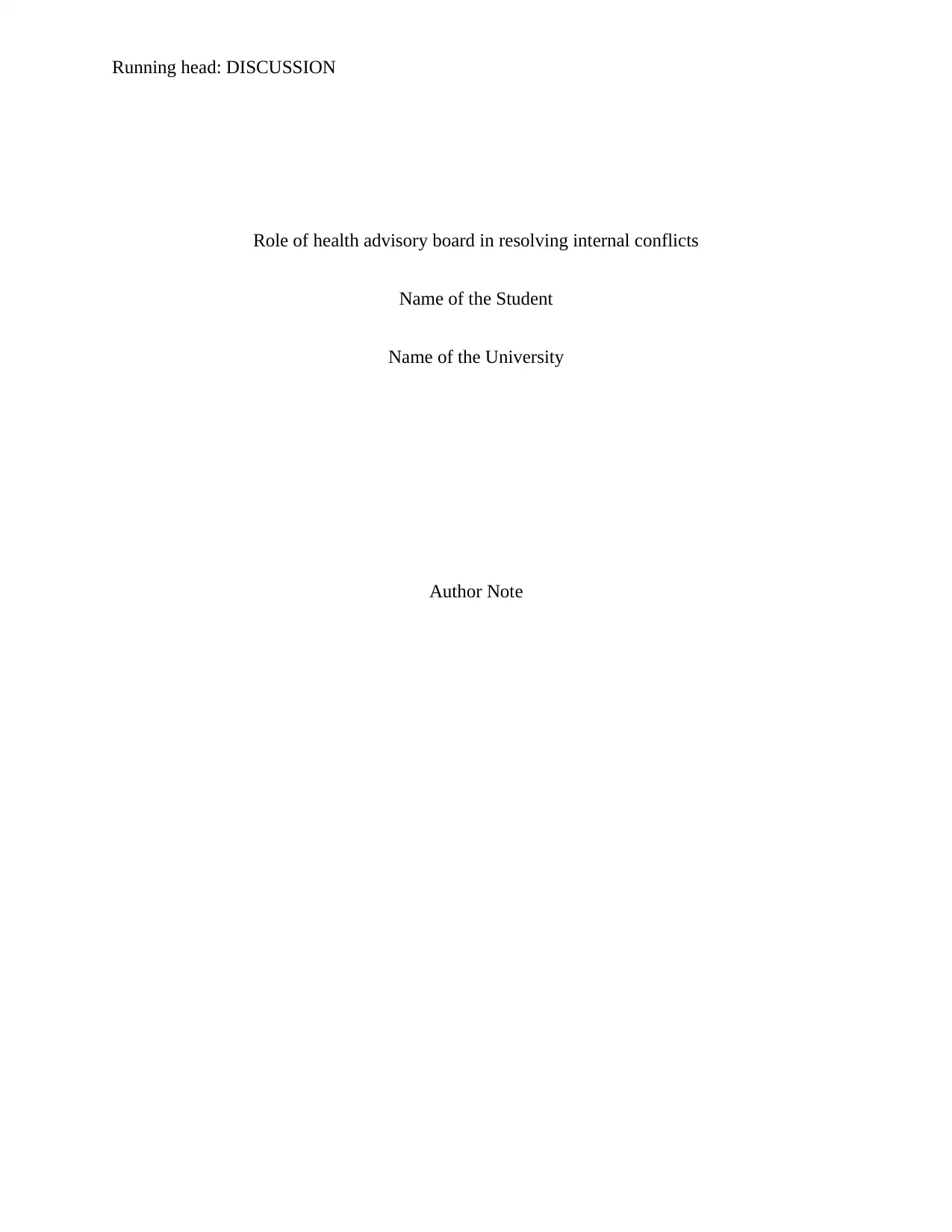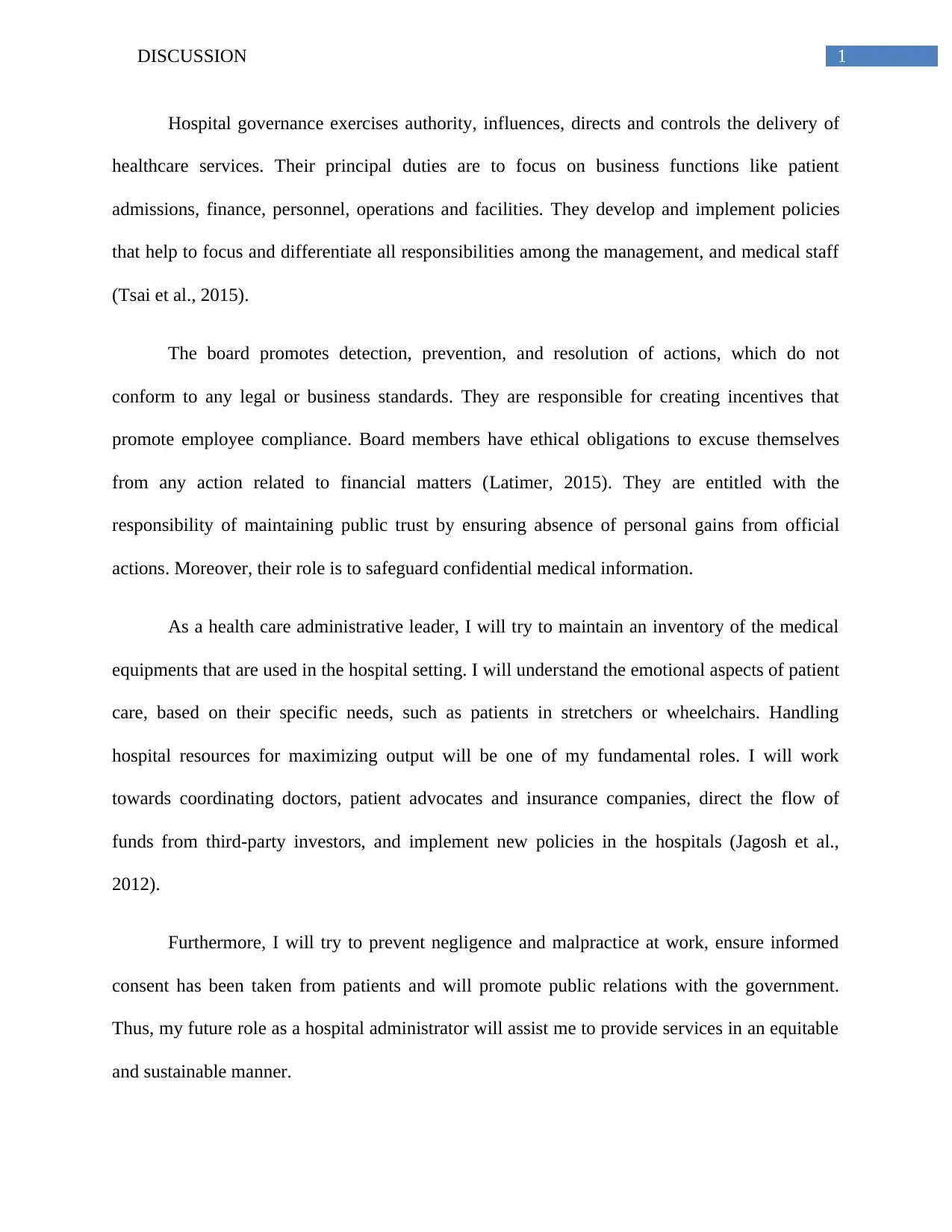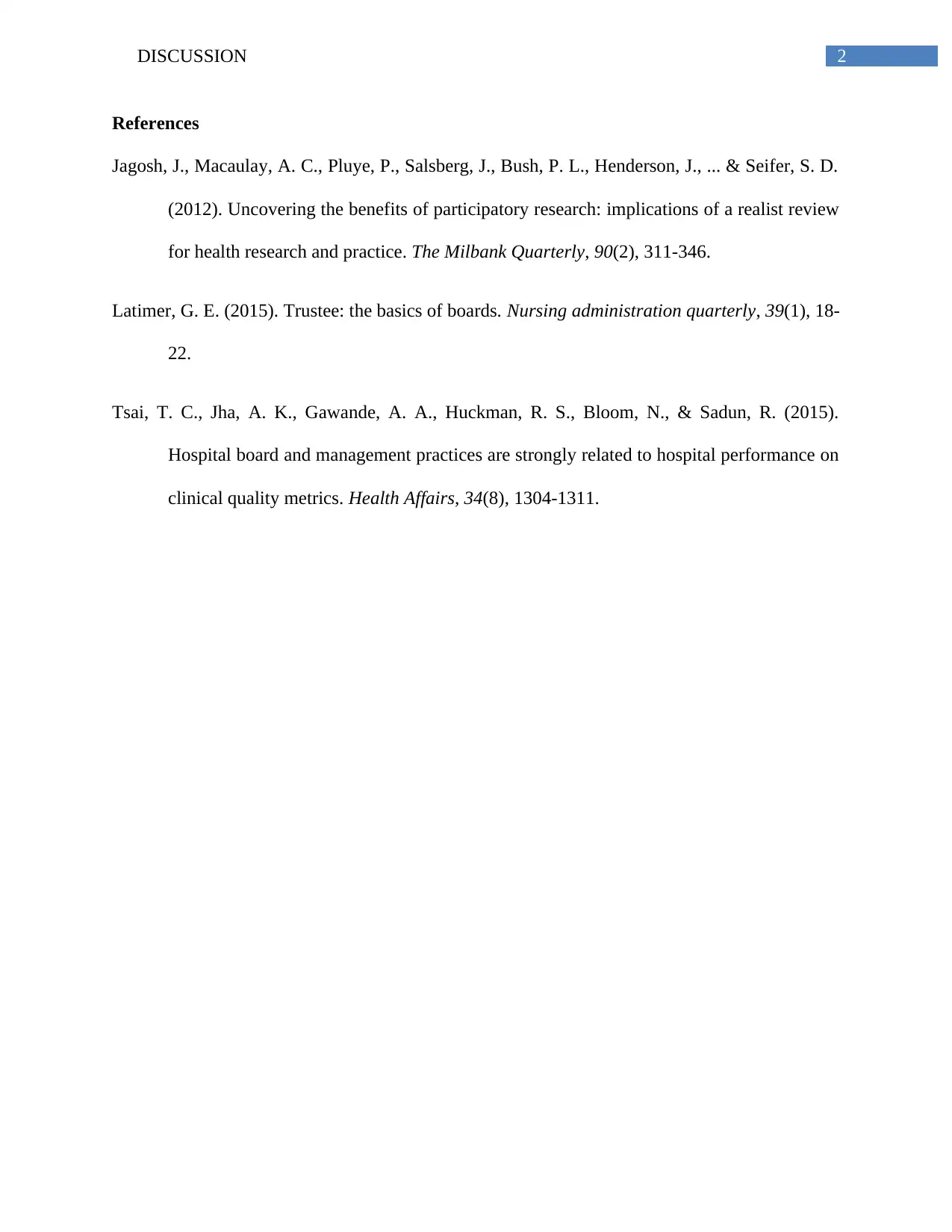Health Advisory Board Role in Resolving Internal Conflicts
VerifiedAdded on 2020/05/04
|3
|480
|74
Report
AI Summary
This report delves into the critical role of health advisory boards within healthcare settings, emphasizing their functions in hospital governance and conflict resolution. It outlines the responsibilities of board members, including ethical obligations related to financial matters and patient confidentiality. The report highlights the importance of maintaining public trust and ensuring compliance with legal and business standards. Additionally, it explores the role of a hospital administrator in managing resources, coordinating patient care, and implementing policies to prevent negligence and malpractice. The report also references key academic sources that support the concepts and arguments presented. This assignment is designed to provide an understanding of the multifaceted responsibilities of health advisory boards and their impact on healthcare delivery.
1 out of 3










![[object Object]](/_next/static/media/star-bottom.7253800d.svg)